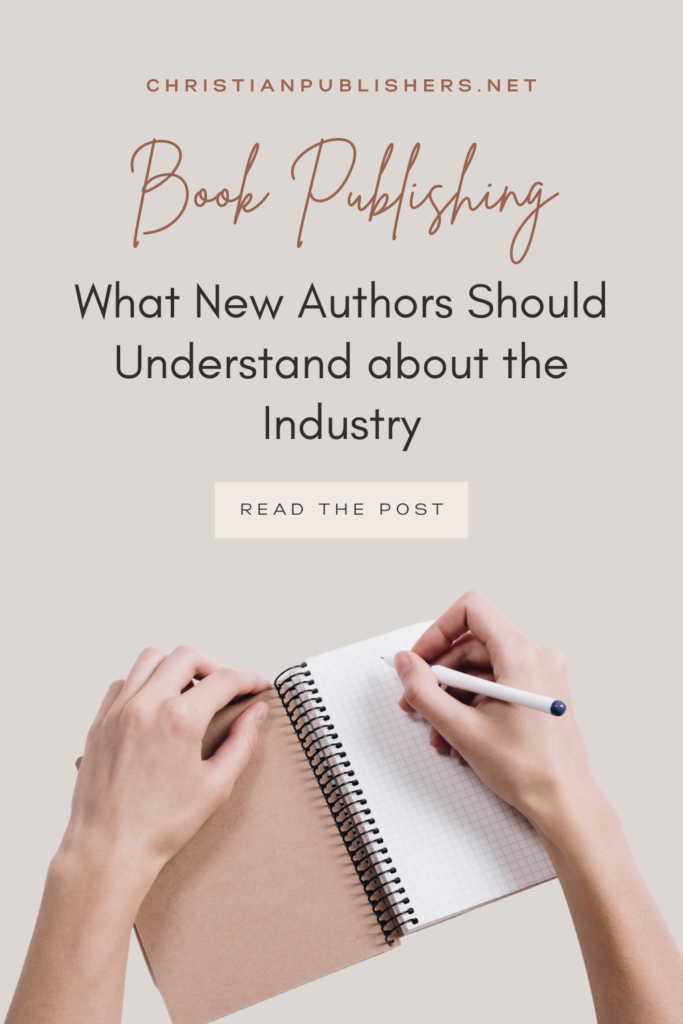
Book Publishing: What New Authors Should Understand about the Industry
When I started as a first-time author ten years ago, I had no idea how the book industry worked, let alone how I should proceed in getting my first book published. Because I had been working on my graduate degrees, I had completed a few research courses along with multiple research papers. This was the beginning of the development of my writing style, to which I applied to my first book.
So where did I start? I started by writing my book, which took nine months. Then through my research, I discovered that traditional publishing companies, as a rule, did not accept manuscripts from first-time authors. Even if my manuscript got accepted by a traditional publishing company, it would be two years before they would get that book to the marketplace. Now there is a shocker! So what were my options at the time? It was called self-publishing, to which I had no clue how that worked. Thus, the long journey began.
To save you from all the drawn-out stories and disappointments, allow me to take you by shortcut and fill you in on how I would proceed today.
People buy books based on the reader’s interest and the author’s writing style and skill-sets. This translates into the author needing to know what genre to write in, and for the author to have good writing skills based on that genre. My writing skills work great for a teaching genre like Bible study or theology type books, but I would make a terrible romance or mystery novelist. Not everyone has the ability to write a book, nor does everyone need to write a book. Books are written for a whole host of reasons, and being a book writer requires one to know why they are writing in the first place. This is part of being a good writer, knowing who you are, and having the skill sets to write a book. If someone with no writing skill-sets has something to say and wants to say that in a book, then pay someone as a ghostwriter to write the book for you, many do.
Once you have a completed manuscript, you should look into two writing aid programs. One is called Grammarly, and the other is called ProWritingAid, and yes, there are others. I would use these tools to help you edit your book and get it ready for submission. Now you have to decide, will I self-publish or traditionally publish?

If you choose to publish traditionally, you need to create a book proposal about your book, which will represent the book and you as the author and your marketing strategies. Many resources on the Internet can teach you how to construct a good book proposal. Next, you will need a literary agent to give that proposal to. It is book agents that traditional publishers talk to and use to screen the author’s content. It’s easier for a publisher to talk to 100 book agents than 10,000 book authors. Some smaller traditional publishers will accept book proposals directly and generally you must follow their guidelines. Hearing back from said publishers generally takes eight to twelve weeks. Why is it done this way? Because publishers are in business to make money, even Christian ones. If a company does not make a profit, its mission statement won’t mean much because it won’t be in business for very long. If your genre is low on readership or your work is not written in such a way that would interest readers, then traditional publishing companies will most likely reject your work. Traditional publishers are looking for authors that are marketable and have some track record toward book sales.
This brings us to the self-publishing model. Self-publishers are also in the business of making money, but because you are the one paying to have your book published and marketed, there is less focus on book proposals and more on providing you a service that will allow you to get your work out to the public in about ninety days. A good self-publishing company will require your book to be professionally edited and provide you with good distribution and marketing options, as well as setting a reasonable retail price for your book, making it more marketable.
The main difference between traditional publishers and self-publishing companies is one pays for most of the book publishing and marketing cost and the other you pay for the services you require, respectively. Some self-publishing companies offer shared publishing, which means they may offer to cover some of your expenses if they feel the book has greater sales potential.
There is another avenue an author can take, and that is to self-publish your books using Kindle Direct Publishing, IngramSpark, Smashwords, Draft2Digital, and more. But this topic requires the space of another article, so we shall move on to the next element of any self-publisher—the author’s platform.
The author’s platform pertains to the marketing strategies and coverage of the author in the public arena. The starting place in building your platform or marketing strategies is with your own author website. Everything else you do in marketing will point the public to your website that promotes you and your books.
A good starting point would be to create a presence on social media platforms, then book websites like Goodreads, Library Thing, and Open Library. Over time you could branch out to create a podcast, do radio and TV author interviews, attend book shows, do book signings, and reach out to other online venues. A good website to research for ideas is called Training Authors and can be found here: https://www.trainingauthors.com/100-places-to-promote-christian-books/
As a side note, most authors will use social media like Facebook, Twitter, and YouTube. Because of the anti-conservative mood on these platforms, they have become unstable to my readership, and many of my genre readers are moving to other platforms, so I made a long term decision to begin marketing on alternative media platforms such as MeWe, LinkedIn, Pinterest, Tumblr, Vimeo, Ultimatetube, GodTube and if you are marketing outside the United States—Reddit—and there are others. Over time Twitter will be replaced by a more friendly site to my readership, and thus, I will begin marketing on those venues as they become available this year.
This should help you get started, and remember to enjoy your work. I understand some will not like the strategy and marketing aspects of this industry, but if you don’t enjoy the writing and learning process, this could be a long journey to the end. To succeed in this industry will require an attitude of a marathoner and not a sprinter. Please take a look at my author’s website as an example of platform building, and if you search for me by name, you will find about ten years of marketing in thousands of website links (https://booksite.rcetc.com).
May God bless you in your writing endeavors.
About the Author
Reid Ashbaucher – Owner
Reid Ashbaucher Publications




